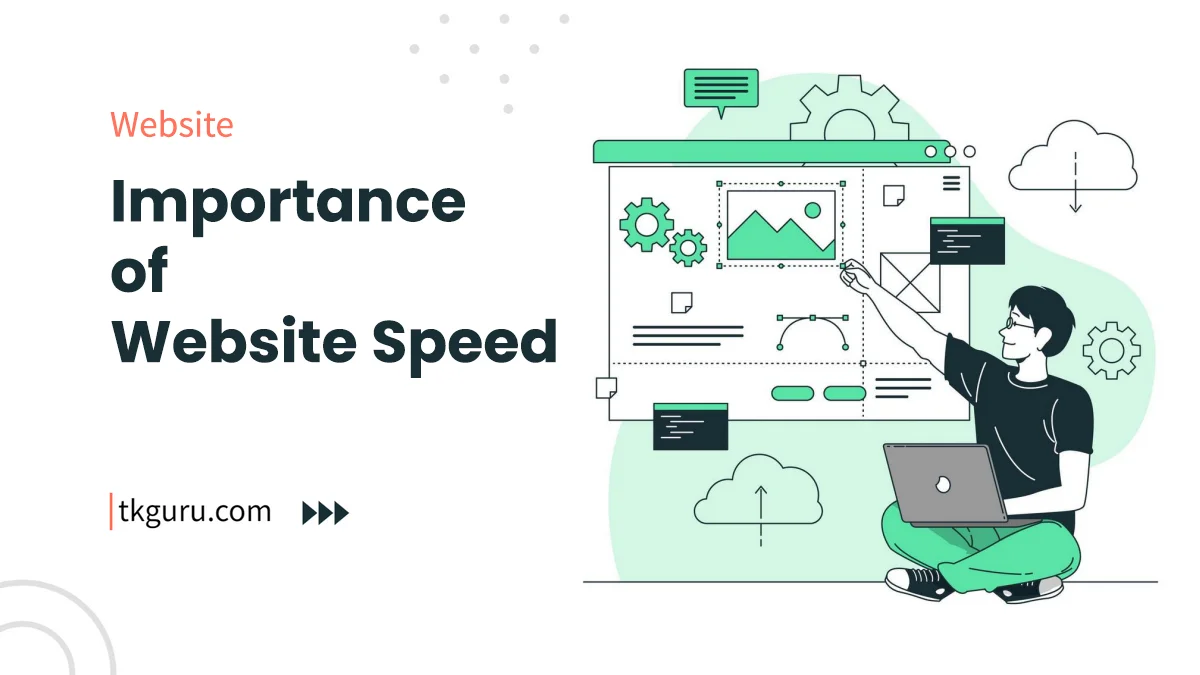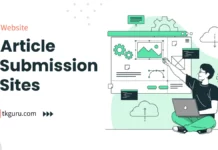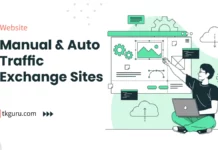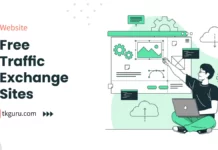Advertisements
Ratings

Importance of Website Speed – In today’s digital age, the speed at which a website loads has become a critical factor in determining its success.
From providing an excellent user experience to impacting search engine rankings and conversion rates, faster loading times are no longer just a preference but a necessity.
In this article, we’ll explore the various reasons why website speed matters and how it can significantly affect your online presence.
Contents
- 1. User Experience Enhancement
- 2. Search Engine Rankings
- 3. Mobile-Friendly Websites
- 4. Conversion Rate Optimization
- 5. User Expectations and Impatience
- 6. Global Reach and Accessibility
- 7. Competitive Edge and Differentiation
- 8. Reducing Operating Costs
- 9. Comparison Table: Importance of Website Speed and its Impact on Various Aspects
- Conclusion
- Importance of Website Speed FAQs
1. User Experience Enhancement
Imagine clicking on a link to a website only to find that it takes ages to load. Frustrating, isn’t it? Slow-loading websites often lead to high bounce rates, where visitors abandon the site before it even fully loads.
This not only creates a negative first impression but also hampers user engagement. Research indicates that users expect a webpage to load in about two seconds or less.
If a site takes longer, the likelihood of users leaving increases by a substantial margin.
Case Study: Amazon reported that for every 100 milliseconds of improvement in page load time, their revenue increased by 1%.
2. Search Engine Rankings
Search engines, particularly Google, consider website speed as a ranking factor. Google’s emphasis on user experience has led to the introduction of Core Web Vitals as a ranking signal.
Core Web Vitals measure various aspects of user experience, including loading performance, interactivity, and visual stability.
Websites that provide a fast, seamless experience are more likely to rank higher in search results.
Case Study: A study by Backlinko found that websites with faster loading times tend to rank higher in search engine results pages (SERPs).
3. Mobile-Friendly Websites
The rise of mobile browsing has highlighted the importance of fast loading times even further. Users expect websites to load quickly on their smartphones and tablets, just as they do on desktop computers.
Slow-loading sites on mobile devices not only frustrate users but also lead to higher bounce rates. This can negatively impact your mobile search rankings and overall website performance.
Case Study: According to Google, 53% of mobile site visitors will leave a page that takes longer than three seconds to load.
4. Conversion Rate Optimization
Website speed directly influences conversion rates, making it a pivotal aspect of e-commerce and lead generation websites.
A slow-loading site can deter users from completing desired actions such as making a purchase, filling out a form, or signing up for a newsletter.
In contrast, faster loading times have been shown to improve user engagement and increase the likelihood of visitors converting into customers.
Case Study: Walmart experienced a 2% increase in conversions for every 1-second improvement in page load time.
5. User Expectations and Impatience
The fast-paced nature of the digital world has led to shorter attention spans and a growing sense of impatience among online users.
Research has shown that users form opinions about a website’s credibility and usability within a fraction of a second.
Slow-loading websites are often perceived as outdated or unreliable, which can result in users leaving and seeking alternatives.
Case Study: Google’s “The Need for Mobile Speed” report revealed that as page load time goes from one second to three seconds, the probability of bounce increases by 32%.
6. Global Reach and Accessibility
In an interconnected world, websites have a global reach, catering to audiences across different time zones and regions.
The speed at which your website loads can vary for users located far away from your hosting server.
Content Delivery Networks (CDNs) play a crucial role in delivering website content to users from servers located closer to their geographical locations. This significantly reduces latency and improves loading times for users worldwide.
Case Study: Cloudflare, a popular CDN provider, improved website load times by up to 60% for users located far from their servers.
7. Competitive Edge and Differentiation
A fast-loading website can set you apart from your competitors. As users increasingly expect faster loading times, having a website that loads quickly can become a unique selling proposition (USP).
A faster website can enhance user satisfaction and create a positive impression of your brand, which can contribute to better customer retention and loyalty.
Case Study: Moz found that reducing the load time of their pages by half resulted in a 25% increase in organic traffic.
8. Reducing Operating Costs
Website speed optimization doesn’t just benefit user experience; it can also lead to cost savings. Optimized websites require fewer server resources and bandwidth, resulting in lower operating costs.
Additionally, fast-loading sites experience fewer customer support inquiries related to slow loading times, reducing the strain on your support team.
Case Study: Catchpoint, a digital experience monitoring company, saved over $250,000 in hosting costs by optimizing their website for speed.
9. Comparison Table: Importance of Website Speed and its Impact on Various Aspects
Here’s a comparison table that highlights the importance of website speed and its impact on various aspects of online presence:
| Aspect | Impact of Faster Loading Times | Case Study |
|---|---|---|
| User Experience | Low bounce rates, higher user engagement | Amazon’s revenue increased by 1% per 100ms |
| Search Engine Rankings | Higher ranking in search engine results | Backlinko study on faster-loading sites |
| Mobile-Friendly Websites | Improved mobile user experience | Google’s 53% mobile visitors leaving |
| Conversion Rate Optimization | Higher conversion rates | Walmart’s 2% increase per 1-second faster |
| User Expectations and Impatience | Positive user perception | Google’s bounce rate increase by 32% |
| Global Reach and Accessibility | Reduced latency for users worldwide | Cloudflare’s 60% improvement for distant |
| Competitive Edge and Differentiation | Enhanced brand image and loyalty | Moz’s 25% traffic increase with speed |
| Reducing Operating Costs | Lower resource consumption, reduced support queries | Catchpoint’s $250,000 savings on hosting |
| Conclusion | Strategic move for user satisfaction and business growth |
This table summarizes the impact of faster loading times across various aspects of your online presence, supported by real-world case studies. It underscores the importance of prioritizing website speed to ensure a positive user experience, better search engine rankings, and increased conversions.
Conclusion
In a digital landscape where speed matters, website loading times have a significant impact on user experience, search engine rankings, conversions, and overall business success.
Prioritizing website speed isn’t just a matter of preference; it’s a strategic move to meet user expectations, improve SEO, and
Importance of Website Speed FAQs
Why is website loading speed important?
Website loading speed directly affects user experience.
Faster loading times lead to lower bounce rates, higher engagement, improved search engine rankings, and better overall user satisfaction.
How can I improve my website's loading speed?
You can improve loading speed through various methods:
- Optimize images by compressing them without compromising quality.
- Minimize HTTP requests by reducing the number of elements on a page.
- Enable browser caching to store certain elements locally on users' devices.
- Use Content Delivery Networks (CDNs) to distribute content across multiple servers.
- Minify CSS, JavaScript, and HTML by removing unnecessary spaces and characters.
- Choose a reliable and fast web hosting provider.
- Implement lazy loading to load images and content as users scroll down the page.
How can I compress images to reduce loading times?
You can use online image compression tools or plugins to reduce image file sizes.
Always balance compression with maintaining acceptable image quality.
What is browser caching, and how does it help speed up my website?
Browser caching involves storing website resources on users' browsers.
When users revisit your site, these resources load from their local cache instead of the server, leading to faster load times.
Is mobile loading speed different from desktop loading speed?
Yes, mobile loading speed is crucial due to the increasing number of users accessing websites on mobile devices. Mobile optimization, responsive design, and considerations for slower mobile connections are essential for a seamless experience.
Improving website loading speed requires a combination of techniques and ongoing monitoring. By optimizing various aspects of your website's design, content, and hosting, you can create a faster and more enjoyable browsing experience for your visitors.
| Web Hosting | Website |
| WordPress | Google Adsense |
| SEO | Affiliate Marketing |
| Blogging | YouTube |
Recent Posts
- How to Recover From a Google Algorithm Update: Strategies for Restoring Organic Traffic
- The Importance of Website Speed: Why Faster Loading Times Matter
- Instant Approval Article Submission Sites: The Key to Swift Online Visibility
- Top 10 Traffic Exchange Sites: Boost Your Website Traffic
Related Tags
how to make websites load faster google chrome, how to increase website speed wordpress, design a website for decreasing the loading time of a website, how to load images faster on website, what are the three ways to reduce page load time, how to open any website faster, how to reduce page load time in javascript, website speed test






